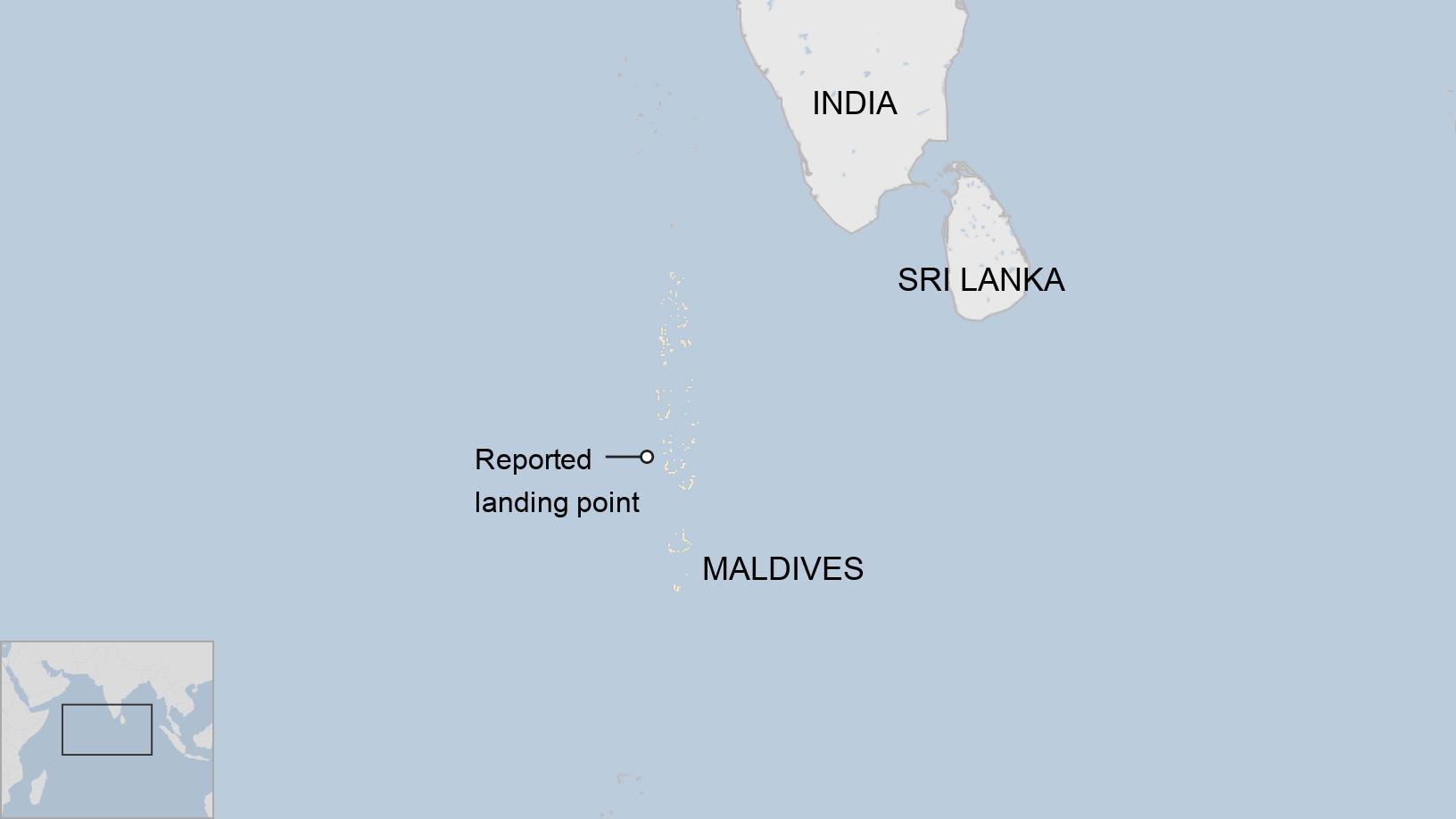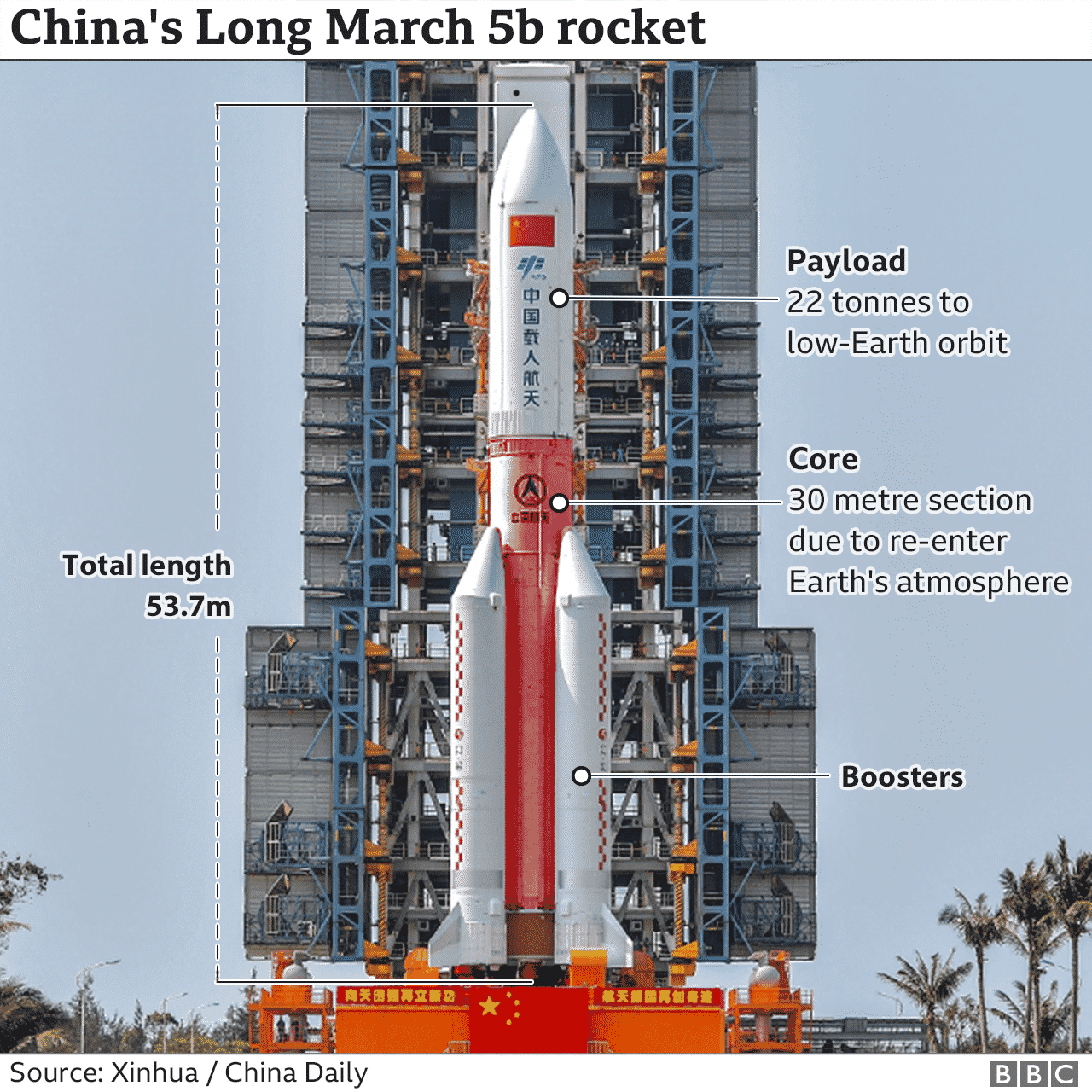The Chinese space agency has officially stated that the remains of Long March-5b, the state’s rocket that was hurtling back towards Earth have crashed into the Indian Ocean. While the bulk of the rocket was destroyed as it re-entered the atmosphere, the debris landed just west of the Maldives while the uncontrolled re-entry on Sunday. During the many days of speculations on the probable landing of the debris, US officials and other experts had warned its return risked potential casualties.
However, China insisted the risk was low.
What actually took place
As per the state media report, the space vehicle re-entered the atmosphere at 10:24 Beijing time (02:24 GMT) on Sunday, citing the Chinese Manned Space Engineering office. There were no reports of injuries or damage.
It said debris from the 18-tonne rocket, one of the largest items in decades to have an undirected dive into the atmosphere, landed in the Indian Ocean at a point 72.47° East and 2.65° North.

Meanwhile, the US Space Command simply said the rocket had “re-entered over the Arabian Peninsula”. No landing point was confirmed by Chinese media, instead it said that it was “unknown if the debris [had] impacted land or water”.
The monitoring service Space-Track, which uses US military data, said the rocket was recorded above Saudi Arabia before it fell into the Indian Ocean near the Maldives.
The past few days of speculations and criticism
Amid fears that the debris could land in an inhabited area, the uncontrolled return of the rocket led to pointed criticism from the US. US and European websites tracked its return, and there was much speculation on social media about where the debris might land.
US Defence Secretary Lloyd Austin said in a statement, “Spacefaring nations must minimize the risks to people and property on Earth. It is clear that China is failing to meet responsible standards regarding their space debris.”
However, space experts, predicted that the chances of anyone being hit were very small, at least because so much of the Earth’s surface is covered by ocean and huge areas of land are uninhabited.

China’s reaction to it
China has bridled at the suggestion that it has been negligent in allowing the uncontrolled return of so large an object. Chinese media described Western reports about the potential hazards involved as “hype”. It predicted the debris would fall somewhere in international waters.
China’s Space ambitions have been no secret to the board. With billions of dollars being poured into its pace efforts in 2019 China became the first country to send an un-crewed rover to the far side of the moon. President Xi Jinping and the state media see the “space dream” as one step in the path to “national rejuvenation”.
The Tiangong space station could be up and running as early as next year – and there is also talk in Chinese media of missions to Mars and a potential shared lunar station with Russia.



